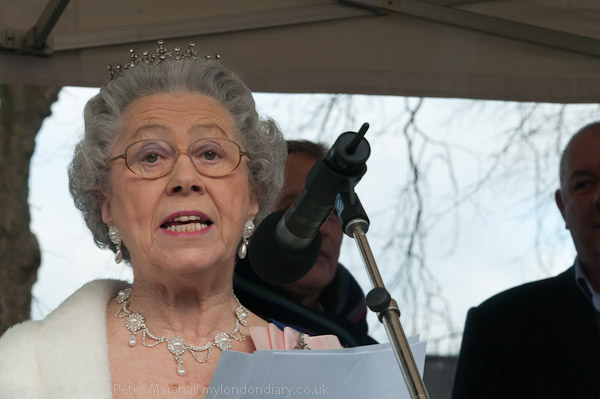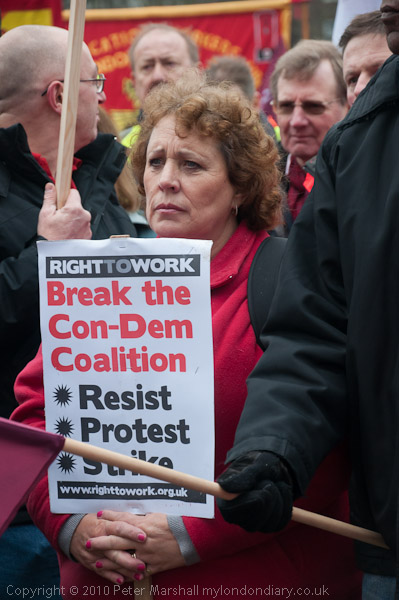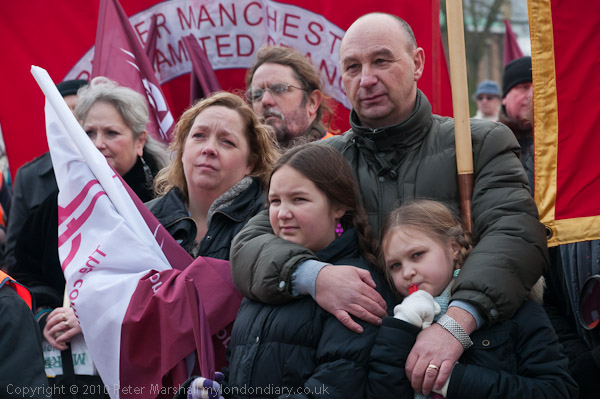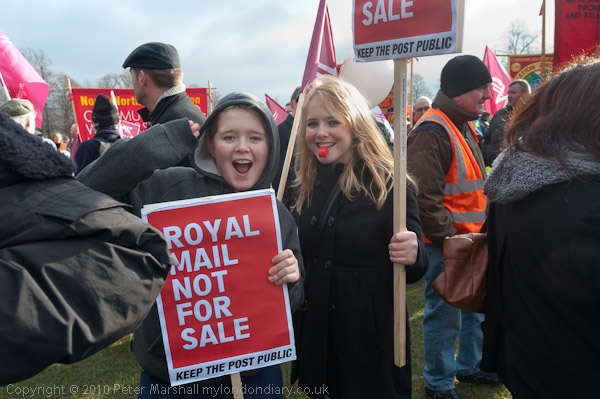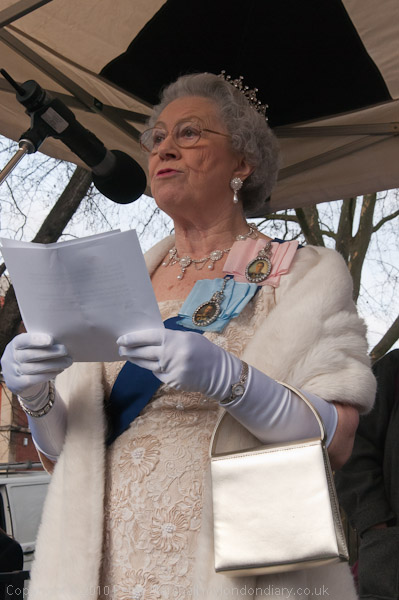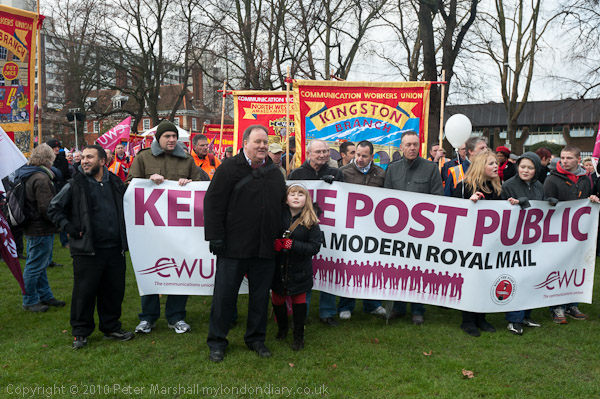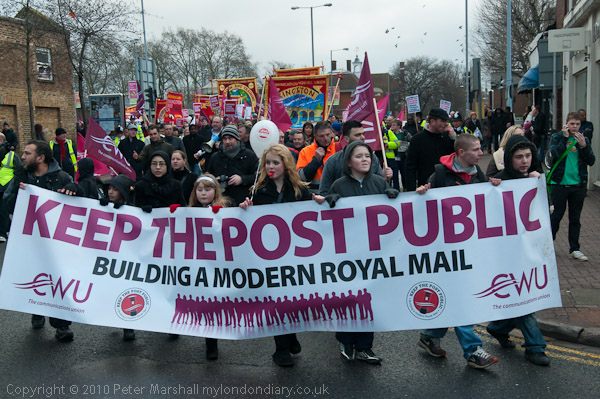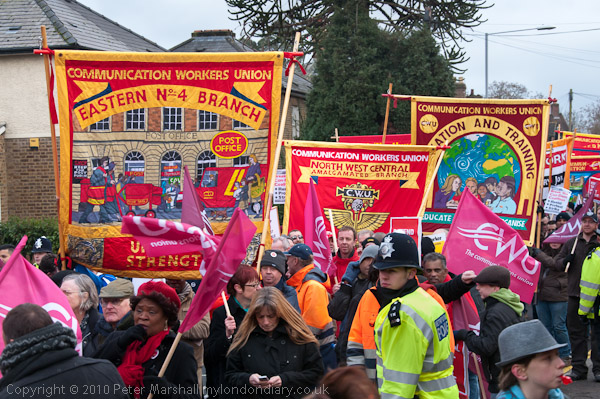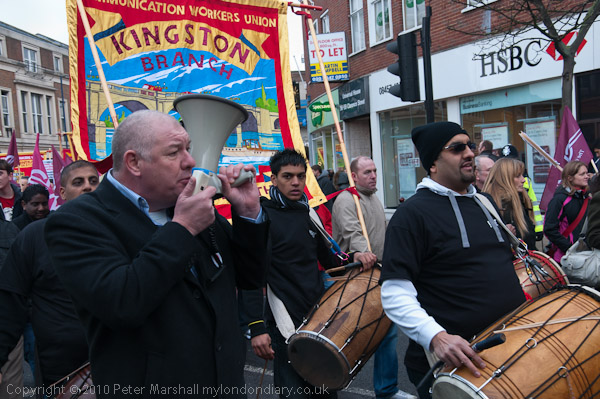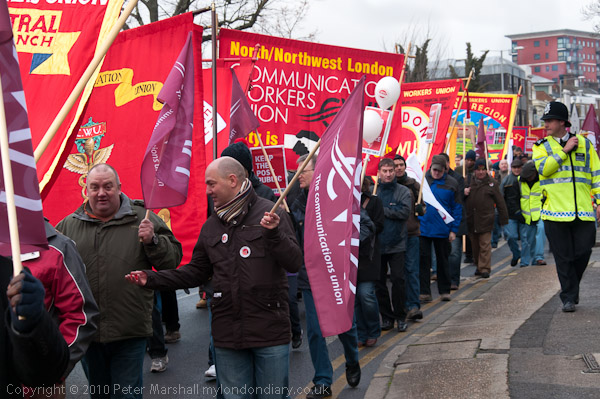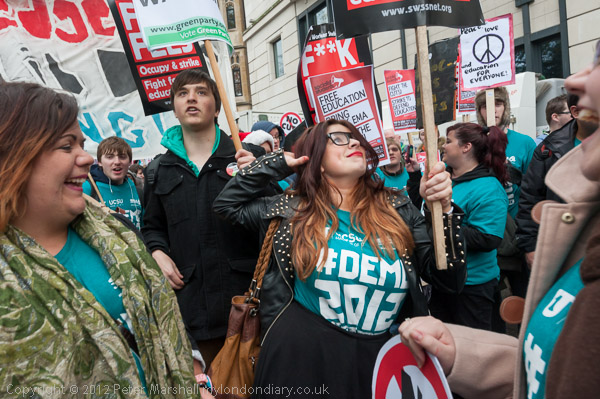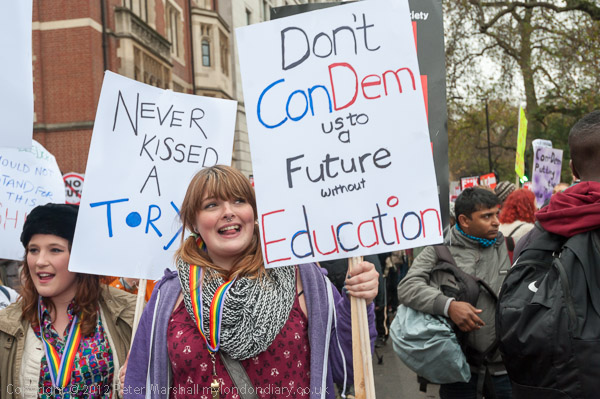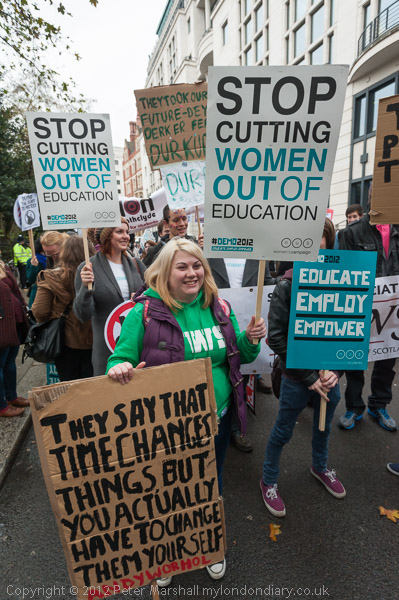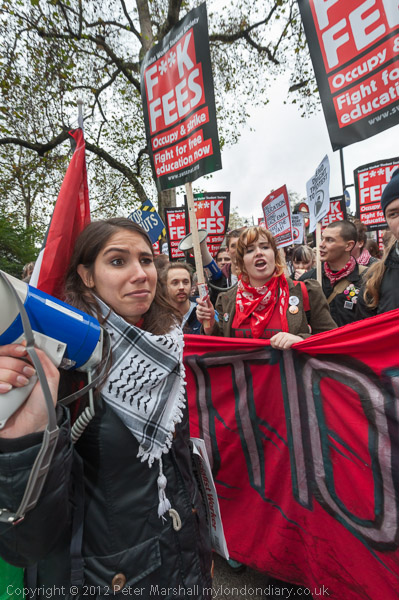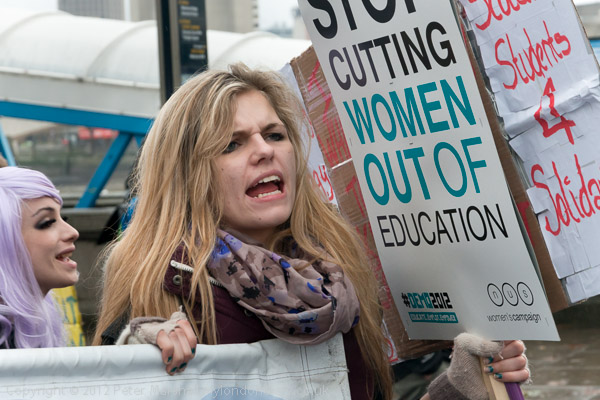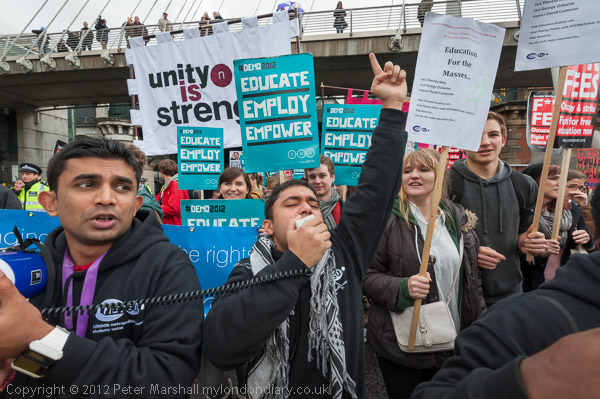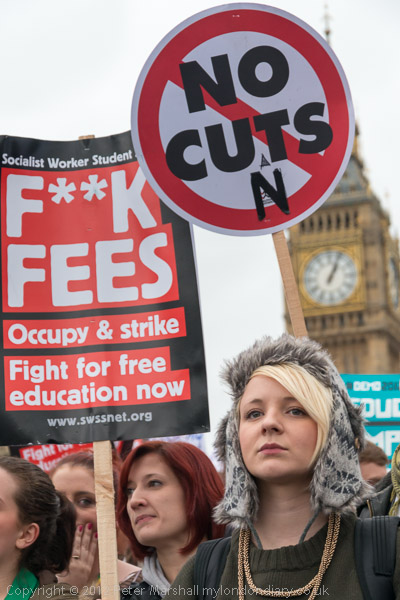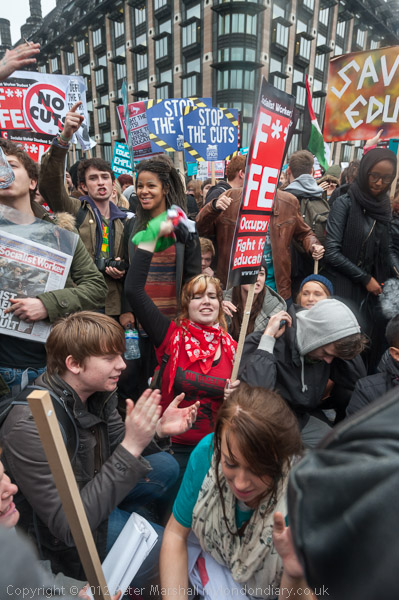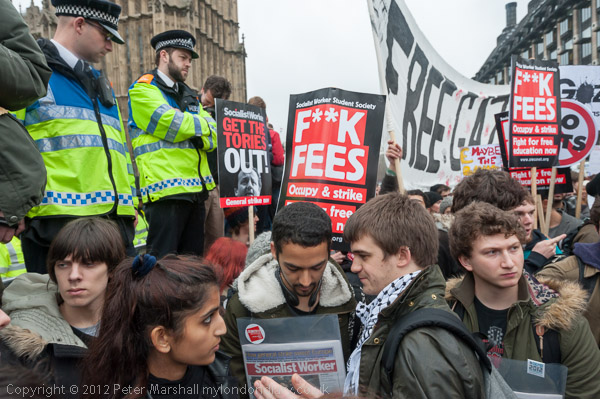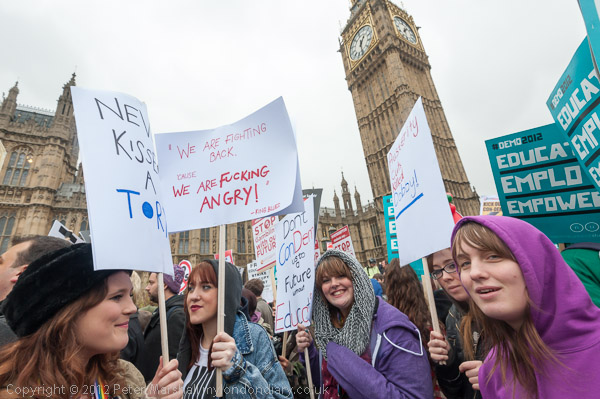UK Uncut Great British Street Party: Waterloo, Barnes & Putney
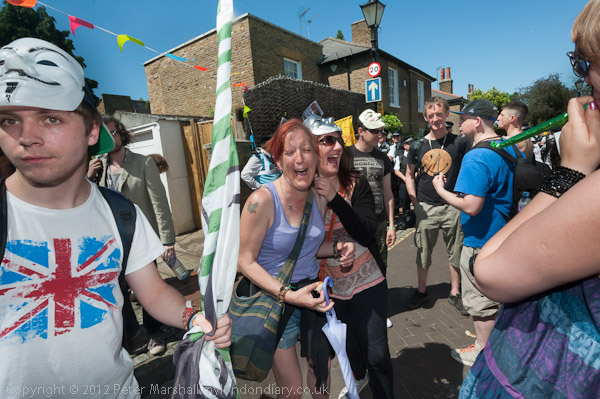
In 2012 public services were being destroyed by cuts made by the coalition government with the Liberal Democrats having gone into the coalition government with the Tories after the indecisive 2010 election. UK Uncut decided to hold street parties in protest on 26th May 2012 and to call for a better and different future..

In the 2010 election the Tories had won 306 seats and Labour 258, but with 57 seats the Liberal Democrats could have formed a coalition with either party to form a government. Although a coalition with Labour would only have included 315 MPs, less than half the total of 650, the differing positions of the 28 MPs outside of the main parties would have made this a working majority.
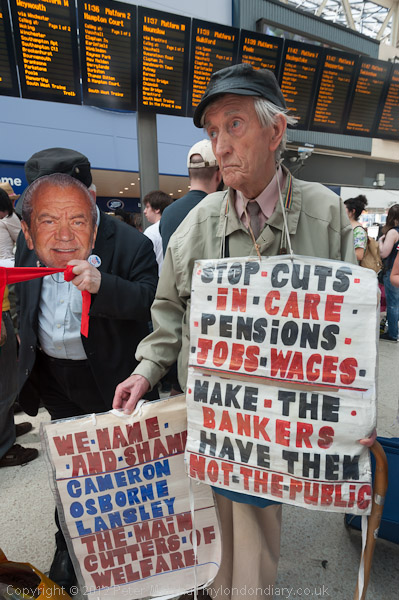
Perhaps because they lied to him more effectively, Nick Clegg chose to form a coalition with the Tories. Probably the most important thing he hoped to gain from this was electoral reform – and the United Kingdom Alternative Vote referendum resulted in a resounding defeat for the alternative vote system – a modified form of ‘First Past The Post’. What Clegg didn’t get was what he wanted, a referendum on proportional representation.

With an general election coming up on July 4th again under FPTP we can again see the urgent need for electoral reform. With FPTP we are more than likely simply to see Tweedledee replaced by Tweedledum rather than the more vital changes we need to deal with the urgent changes we need, particularly to deal effectively with the climate challenge, but also to move towards a more equal and united society.

But for now at least we are stuck with FPTP. Possibly the rise of the Reform Party will present a real challenge to our current two party monopoly, and though I’m very much not a supporter of their policies this fragmentation would certainly improve matters. Just a shame that no similarly positive split on fundamental issues has occurred within the Labour Party which has managed to successfully marginalise its right wing – or expel them – without a similarly important alternative party emerging. Perhaps because of a much deeper loyalty on the left to the Labour movement.
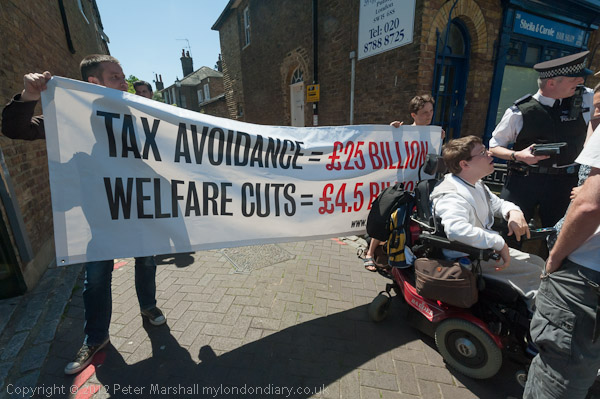
Wherever we live I think the best response to the continuing use of FPTP is to vote anti-Tory – that is for the candidate with the greatest chance of defeating the Tory candidate rather than for any particular party. The best result I think we can hope for in July is one that requires a coalition of several parties to govern. Politics would then have to move into an area of cooperation and consultation rather than the adversarial nonsense which now dominates our politics.

Clegg sold the country down the river for false gold, and joined the Tories in implementing a vicious series of cuts to public benefits from central government in almost every aspect of our lives.
UK Uncut stated:
"The government is slashing our public services and making the most marginalised people in our society pay for an economic crisis they did nothing to cause. It doesn’t have to be this way. In 1948 the UK’s national debt was far larger than it is today, but instead of cutting services and hitting the poorest hardest the NHS and the Welfare State were born.
So forget the Queen’s Jubilee and join the only London street party worth going to this summer – UK Uncut’s Great London Street Party. Let’s celebrate the services that are being destroyed, take the fight to the streets and party for our future, a different future, a better future, that we can build together."

The London event was one of several street parties organised in towns and cities across the UK. In London 4 blocks, one highlighting the welfare cuts, another the NHS, a third the disproportionate effects the cuts were having on women and the last mourning the effects they are having on democracy itself, met and finally entrained at Waterloo Station, travelling either to Putney or Barnes.

The destination was kept secret, and after we left the trains we followed bloc leaders with coloured umbrellas, only finding when we were almost there that the party was to take place in the short Putney street where Nick Clegg has his London home. They were on holiday elsewhere.

Police tried to stop the protesters at various points, including on the final street, but eventually had to let the party go ahead. People taking part seemed to be careful not to cause any damage, though some were pushed into hedges by police. But the protesters kept up the party atmosphere despite considerable provocation.

Later I heard that when the party ended at 6pm and people were making their way peacefully to Putney station they were attacked by a group of police, who were perhaps frustrated by not being allowed to attack the party earlier in the day when the press was present in large numbers reporting on the event.

You can read more about the party and see many more pictures on My London Diary at UK Uncut Great British Street Party
Flickr – Facebook – My London Diary – Hull Photos – Lea Valley – Paris
London’s Industrial Heritage – London Photos
All photographs on this page are copyright © Peter Marshall.
Contact me to buy prints or licence to reproduce.
